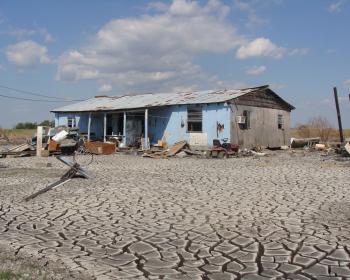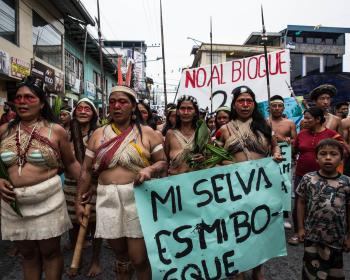


Allegedly criminally set fires have destroyed nearly all of Xavante Indigenous Territory Areões, about 219,000 hectares, in the state of Mato Grosso, Brazil, according to a report by Globo News, a leading mainstream media source in Brazil. Areões is an Indigenous Territory, home to about 1,500 Xavante who are now facing the catastrophic impacts from the fires.
As currently written, EP4 does not set forth a strong risk management framework to provide a dynamic starting place from which [financial institutions] can build better and more responsive social and environmental screening processes… the Equator Principles – if not further revised – can no longer be relied upon as a proxy for responsible and sustainable project finance.
By Chris Swartz
On August 19 and 20, 2019, the United States saw its first ever Native American Presidential Forum in Sioux City, Iowa. There, Tribal leaders and Native organizers, including Native youth, were able to ask the nine candidates questions concerning topics such as the climate crisis, missing and murdered Indigenous women, and continuous government neglect of Native American peoples. Each candidate was individually questioned by a panel of six to eight panelists, in front of an audience of members from different Tribal Nations across the country.
Cultural Survival's 2018 Indigenous Youth Community Media Fellows have been hard at work. The Fellowship Project supports young Indigenous leaders between the ages of 16-26 who are committed and eager to learn about technology, program development, journalism, community radio, media, and Indigenous Peoples’ rights advocacy.